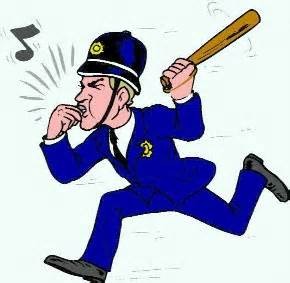Feedback is defined in the Oxford dictionary as: “Information about reactions to a product, a person’s perform ance of a task, etc. which is used as a basis for improvement.” Feedback can range from praise too criticism, each are equally importance. Praise allows us to realise that what we are doing is correct and that we are on the right path, it also makes a person feel good about their work and themselves. Criticism can create an opportunity for development, it allows us to view our work from another person’s perspective and most importantly learn from our mistakes.
ance of a task, etc. which is used as a basis for improvement.” Feedback can range from praise too criticism, each are equally importance. Praise allows us to realise that what we are doing is correct and that we are on the right path, it also makes a person feel good about their work and themselves. Criticism can create an opportunity for development, it allows us to view our work from another person’s perspective and most importantly learn from our mistakes.
I have titled this blog post “fear of feedback” as I believe that giving feedback can sometimes much more difficult than receiving it. Criticising a person’s work is never easy. You don’t want to offend a person or insult their work however it is also important to highlight areas for improvement so they don’t continue making regular mistakes. Personally, I prefer receiving feedback. I love being able to see where I have made key points and perhaps am working in the correct direction, but I also get motivated by criticism as I always try to better myself and my work. Sometimes when criticism is too harsh it can knock a person’s confidence and this has happened to me in the past. When your feedback is all negative and doesn’t give you any tips to improve it can make you feel like giving up so it is important as teachers we learn how to give effective feedback to allow successful learning and improvement.
The feedback I received on my lasted blog post has so far been very positive. This has made this task a more positive experience. I was initially worried about the thought of giving feedback to people I didn’t know too well. I sometimes find it easier to give feedback to people I have a strong connection with as you know exactly how to word any critique in order for them to take it on board but to not be offended. However giving feedback to friends can also cause you to feel pressurised into saying that everything is great when in reality there are various improvements to be made. Thankfully, both blog posts I read were extremely well written and met the criteria fully. This did make this process a lot easier for me as personally giving positive feedback is much more enjoyable than highlighting areas for improvement.
I have learned a lot from this task. Firstly, that giving feedback is extremely important to allow an individual to progress. I have also learned that giving criticism is just as important as giving positive feedback. I hope that overtime I gain more confidence in relation to providing peers with feedback, and this this found confidence will make giving small criticisms slightly less daunting.
This task can also teach us a lot for when we are on placement and eventually qualified teachers. It is important not to overwhelm children with criticism. This can not onl y knock their confidence but force them into a negative frame of mind in relation to learning. Their are multiple ways to give feedback such as 2 stars and a wish, stickers and reward charts. Although 2 stars and a wish can work positively in most situations, it is possible for some children to get fed up of constantly having an improvement and if their work is of high standards we shouldn’t force ourselves to find faults. I hope that when on placement I learn other effective feedback systems which I can use and develop in my teaching. I also hope that I can effectively use feedback I receive to improve my writing technique and teaching styles.
y knock their confidence but force them into a negative frame of mind in relation to learning. Their are multiple ways to give feedback such as 2 stars and a wish, stickers and reward charts. Although 2 stars and a wish can work positively in most situations, it is possible for some children to get fed up of constantly having an improvement and if their work is of high standards we shouldn’t force ourselves to find faults. I hope that when on placement I learn other effective feedback systems which I can use and develop in my teaching. I also hope that I can effectively use feedback I receive to improve my writing technique and teaching styles.
There are multiple websites giving advice on how to give effective feedback. I found this site very interesting and am sure it will be beneficial for future use:
http://www.edutopia.org/blog/tips-providing-students-meaningful-feedback-marianne-stenger




